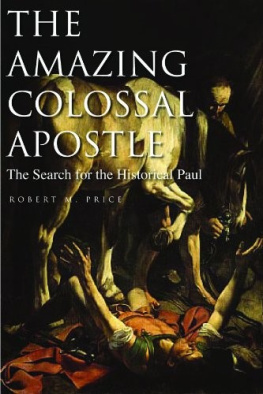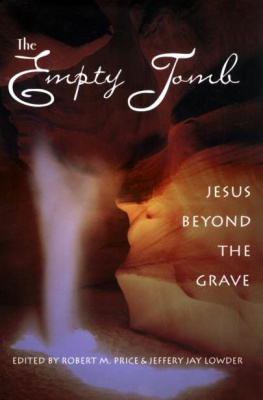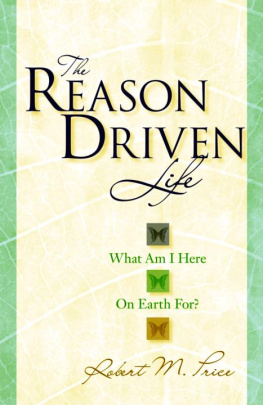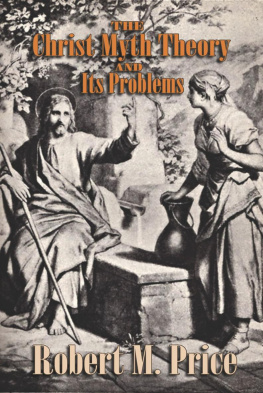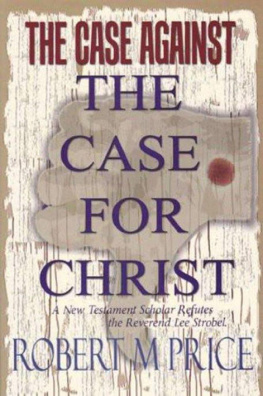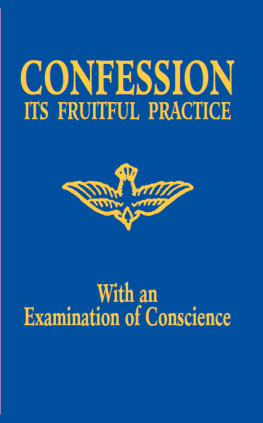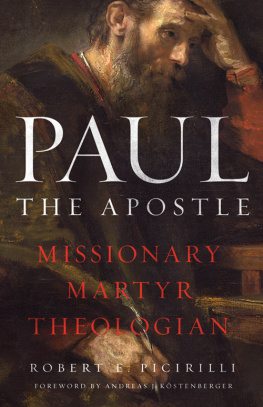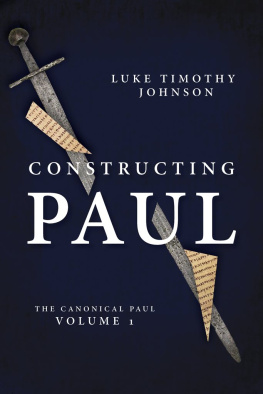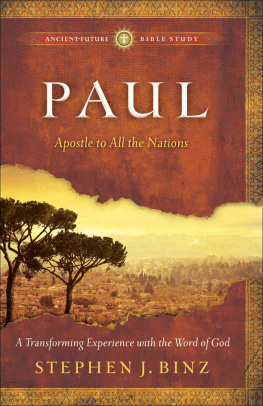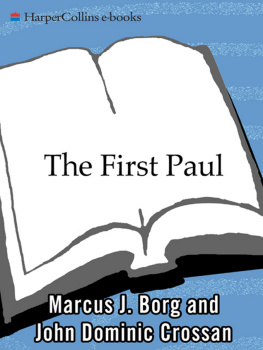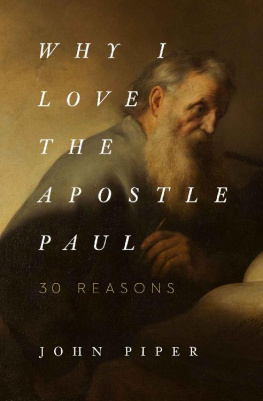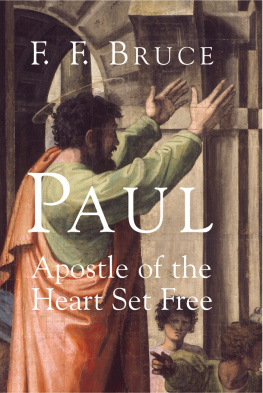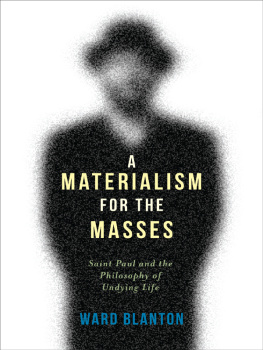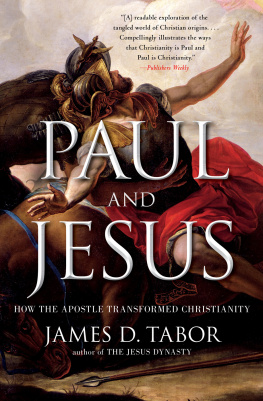Contents
The
Amazing
Colossal
Apostle
The
Amazing
Colossal
Apostle
The Search for the
Historical Paul
Robert M. Price
Signature Books | Salt Lake City | 2012
2012 Signature Books. Signature Books is a registered
trademark of Signature Books Publishing, LLC. All rights
reserved. The Amazing Colossal Apostle was printed on acid
free paper. It was composed, printed, and bound in the
United States of America.
For more information, consult www.signaturebooks.com.
Cover design by Ron Stucki
16 15 14 13 12 5 4 3 2 1
Library of Congress Cataloging-in-Publication Data
Price, Robert M., 1954-, author.
The amazing colossal apostle : the search for the historical
Paul / by Robert M. Price.
pages cm
Includes bibliographical references and index.
ISBN 978-1-56085-216-2 (alk. paper)
1. Paul, the Apostle, Saint. 2. Bible. N.T. Epistles of Paul
Criticism, interpretation, etc. I. Title.
BS2506.3.P75 2012
225.92 dc23
2012011325
Contents
(Print Edition)
Introduction: Deconstructing Paul vii
1. The Legend of Pauls Conversion 1
2. By Posthumous Post 25
3. The Evolution of the Pauline Canon 45
4. The Apocalypses and Acts of Paul 89
5. The Original Gnostic Apostles 131
6. Paulus Absconditus 173
7. The Secret of Simon Magus 185
8. Salvation and Stratification 235
9. The Epistle to the Romans 253
10. First Corinthians 299
11. Second Corinthians 377
12. Galatians 411
13. Laodiceans and Ephesians 437
14. Philippians 455
15. Colossians 469
16. Thessalonians 483
17. The Letter to Philemon 501
18. The Pastoral Epistles 505
Conclusion: A Canticle for Paul 533
Index 537
Deconstructing Paul
A Short Introduction to What Follows
The Perils of Pauline Studies
At the dawn of the twenty-first century, it is a strange time for Pauline studies. After seemingly having run out of other ideas to beat to death, the academy has ventured into new territory. One might even say that, on analogy with the intrepid Netherlanders of old, Pauline scholars have created new territory to settle. A visit to the seminary book store or the religion aisle at Barnes & Noble will acquaint the reader with books arguing that Paul was a culture critic of Hellenistic Judaism, that he was a Jew and remained a Jew, that he wrote against U.S. foreign policy, and so on. Indeed, more than ever, he seems like a new Oracle of Delphi whose equivocal utterances may be read as conveying whatever message one most wants to hear. Like the infamous historical Jesus, Paul has become a reflection of the scholars studying him.
Part of the reason for this state of affairs is that Jesus has recently been unavailable for these uses. As scholars have become more skeptical about recovering the goods on the historical Jesus (as witness the Jesus Seminars claim that only 18 percent of the sayings database was reliable), the less plausible it has seemed to make him the poster boy for green politics, feminism, whatever. Granted, this hasnt stopped a number of scholars who still write books manufacturing and manicuring Jesus to look like them, since the less evidence there is, the more room is left for speculation; but some have retreated to Paul instead. Perhaps he can be the bulwark theologians once thought they had in Jesus. But great ironies lie this way.
First, the closer scrutiny the Pauline texts receive, the clearer it becomes (and by now it seems mighty clear indeed) that the epistles present us with many of the same challenges the Gospels did. They appear to be filled with the same variety of redactional seams, non-sequiturs, and double-audience rhetorical tricks we find in the Gospels. In short, the historical Jesus problem replicates itself in the case of Paul. The epistles reveal themselves to the discerning reader to have exactly the same sort of limitations as the Gospels do: both are collections of fragments and pericopae contributed and fabricated by authors and communities of very different theological leanings. Both present barriers to the access of the individuals under whose names they appear, not open doors.
Confronting the Protestant Christ
Second, scholars are more reluctant to recognize the data surrounding Paul and their implications. In short, Protestants of whatever vestigial degree have long ago elevated Paul over Jesus as their dogmatic master. Conservative evangelical Edward J. Carnell understood the Gospel of John to be cognizant of something like this when it has Jesus predict the advent of the paraclete who will unveil new truths to the disciples, for which they were not yet ready during Jesuss earthly sojourn. The Beloved Disciple implicitly filled the role of the paraclete, and this is why the Gospel of John differs so much as to content and style from the Synoptics. It embodies the advanced course provided by the paraclete. Some Marcionites believed Paul was the paraclete, seeing in him the definitive interpreter of Jesus Christs significance. Marcionites liked to depict Jesus sitting on a central throne with Paul to his right hand and Marcion to his left, and I would say that Protestants believe that too. Jesus gets reduced to the Christ event, the naked and mute act of God which means nothing until some prophetic voice (Pauls) comes along to tell us what it means.
In the wake of the Protestant Reformation, the so-called magisterial reformers made Paul their figurehead and the source of their theology. It is he, not Jesus, who speaks in terms of justification by faith. It is Jesus who threatens to unravel the whole thing by enumerating commandments of the Torah and telling inquirers, Do this and you will live. Ahem, enough of that , if you please! On the other hand, it is the Anabaptist Hutterites, Amish, and Mennonites who take their marching orders from Jesus: turn the other cheek, do not swear oaths. Three centuries later, liberal Protestants of the Harnack stripe discarded Paul for Jesus. Paul meant Protestant orthodoxy. And it was the ostensible historical Jesus they sought as a substitute for him, a Jesus who could be assumed to have preached a kind of Reform Judaism. This was a relief: no more Nicene Creed, no more worship of Christ, no more theology at all, just individual piety and the social gospel. Liberals wanted the religion of Jesus, the one he himself practiced, and no longer the religion about Jesus. They held Paul responsible for the changeover from one to the other. They dubbed Paul the second founder of Christianity.
Post World War I neo-orthodox theology went back to Reformation-era Paulinism, relieved at the seeming failure of the historical Jesus enterprise. As Albert Schweitzer showed, most of the historical Jesus models proposed by scholars reflected only their own biases. Schweitzer felt keenly Jesuss moral demands and famously obeyed them by founding a hospital in French Equatorial Africa but did not feel obliged to agree with Jesus theologically. He was able to see Jesus preaching a message of apocalypticism that sounded fanatical to modern ears, his own included, but categorized it as somewhat irrelevant theology. The neo-orthodox seized the distinction and reinterpreted the apocalyptic discourse of Schweitzers Jesus in a different key. Jesus had come to bring, not the literal end of the world, but the end of the Jewish dispensation, to be followed by the Christian Church, not by the sky-descending kingdom of God. It was a bit of a shell game, but it provided passage back from Jesus to Paul. Indeed, it was surprising to see theologians willing to admit that Jesus had been wrong about the end of the world. But then, that only meant one could more easily put Jesus on the shelf and have recourse to Paul as ones chief theological oracle.

